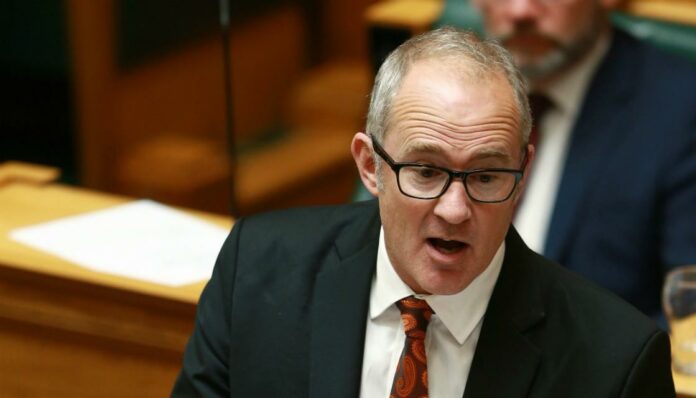In a recent social media post, former Minister of Disarmament and Arms Control, Mr. Phil Twyford, publicly endorsed Dr. Ramzy Baroud, heralding him as a “leading Palestinian thinker and writer” who presented a “powerful case for recognizing Palestine”, including calling the terror organisations Hamas and Islamic Jihad “religious entities”.
Dr. Baroud’s speech was centered on urging New Zealand to unilaterally recognise a State of Palestine. Dr. Baroud’s advocacy for a Palestinian state seems, on the surface, to be driven by noble intentions. Yet, a closer look reveals a narrative that ignores the complex challenges within the region.
While Dr. Baroud paints a rosy picture of a future Palestinian state, the current realities on the ground present a different story. With Gaza under the control of a terror organisation, Hamas, and Judea and Samaria influenced by the Palestinian Authority, the question of who would govern a future Palestinian state becomes a matter of grave concern. The Palestinian Authority’s track record, marred by corruption and incitement, casts a shadow over any endorsement of their leadership. By endorsing this narrative, Mr. Twyford inadvertently lends his support to these questionable elements.
Dr. Baroud’s rhetoric relied heavily on historical misrepresentations, a tactic that serves to further obfuscate the situation. The notion that the Palestinian state has an ancient history akin to “ancient Byzantine Churches” is a fallacy. In reality, the “Palestina” referred to by Dr. Baroud was a term coined by the Romans in the aftermath of the Bar Kokhba revolt as a way of shaming the indigenous Jewish population. ‘Palestina’ was not a sovereign Palestinian state, but a part of the Roman Empire, and drawing comparisons between historical names and modern political entities is misleading.
Furthermore, Dr. Baroud’s asserted that Israel operates without constitutional constraints because there is no written constitution. New Zealand also doesn’t have a formal written constitution yet, like Israel, there are still systems of checks and balances. Israel’s robust democracy, vibrant media landscape, and independent judiciary ensure that governmental power is not unchecked, just as in New Zealand.
One glaring omission in Dr. Baroud’s narrative, and subsequently Mr. Twyford’s endorsement, is the historical role of Arab leaders in perpetuating the conflict. Time and time again Arab leaders have rejected proposals for peace without counter-offers. The Oslo Accords, intended to pave the way for peaceful coexistence, were met with violence and continued animosity. The absence of acknowledgement of these crucial events reflects a narrow perspective that undermines genuine efforts for lasting peace.
If Mr. Twyford genuinely seeks to contribute to the resolution of the Palestinian-Israeli conflict, a more informed and balanced approach is imperative. A condemnation of terror groups, a critical evaluation of Palestinian leadership, and a comprehensive understanding of historical realities are essential for fostering productive dialogue. Encouraging both sides to engage in meaningful negotiations, rather than pressuring one party, would be a more constructive path forward.
In the spirit of open discourse, we await Mr. Twyford’s response to these concerns. A comprehensive and nuanced understanding of the complex issues at play is vital for achieving a just and lasting resolution to the Palestinian-Israeli conflict.



